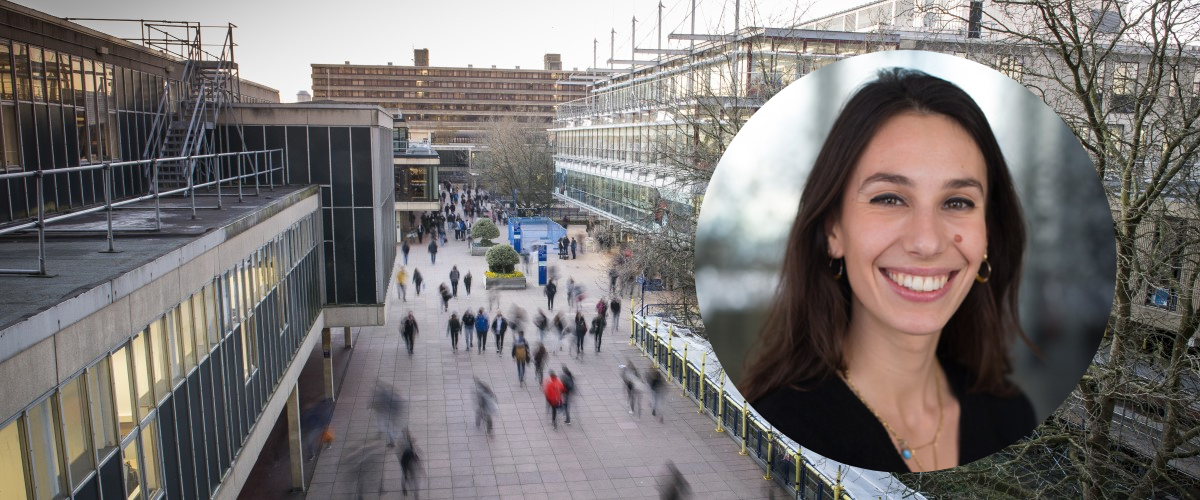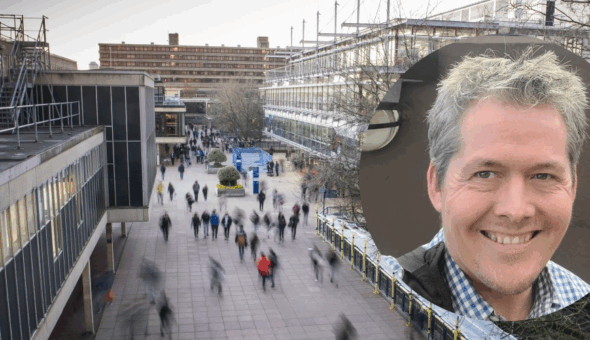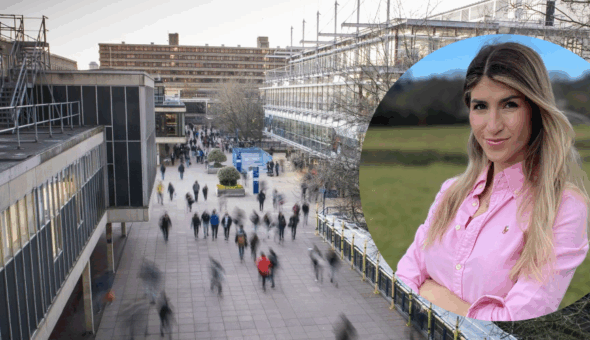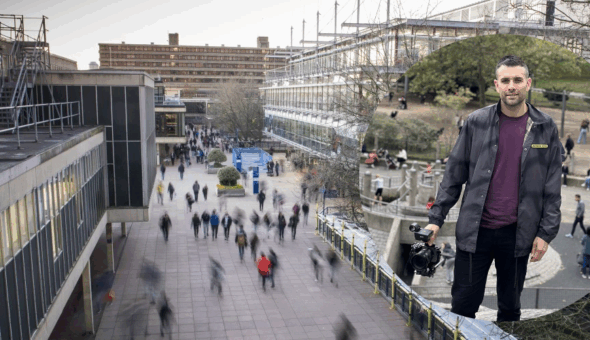Bath’s charm – as well as its international profile – convinced Lara that it was the university for her. The dance society sealed the deal, allowing her to pursue her creative passions alongside preparing her for her dream career in international relations.
Now working at the World Bank in Washington, D.C., Lara reflects on how her time at Bath equipped her with the skills to achieve her international career.
Why did you choose to study at Bath?
I was drawn to Bath for many reasons – the city's beauty and history, with its Roman heritage and literary charm, as well as the university’s strong academic reputation and high international rankings. The vibrant and welcoming campus atmosphere made me feel at home instantly. A significant factor in my decision was also the dance society, which I had researched beforehand. It was incredibly active and aligned with one of my greatest passions.
Did you have a particular career in mind when you chose your course?
Yes – international relations had always been an area of interest, particularly because of my Lebanese heritage and the questions I had growing up around conflict and geopolitics. I was curious to better understand the dynamics shaping the world and the systems behind international cooperation. Bath gave me the opportunity to pursue this interest through a flexible curriculum, especially with a focus on conflict studies in my final year, which helped lay the foundations of my professional journey.
Can you tell us about your experience of studying here? Any favourite memories, or places to go on campus and in the city?
It was an incredible experience – sometimes challenging, but full of discovery, friendships and personal growth. I have fond memories of walks along the Bath Skyline, nights out in town, and lazy Saturdays. I used to love getting coffee at Society Café, wandering near Pulteney Bridge and having cocktails at Opium before dancing to old-school R&B at Moles – sadly now closed. While all-nighters in the library during first year were tough, they’re part of what bonded us all together.
Were you a part of any societies or sports clubs during your time at Bath? What did you enjoy most about them?
Yes, I was heavily involved in the University’s dance society, which at the time was called BodySoc. Dance, especially ballet and contemporary, has always been a passion of mine, and the society was one of the reasons I chose Bath in the first place. I was a member throughout my undergraduate years and served as Chair in my second year.
We were a very active group, taking part in inter-university competitions, producing shows, choreographing routines and organising events throughout the year. It was more than just a hobby, it gave me a real sense of belonging, space to express my creativity and helped me develop confidence, leadership and teamwork skills. The experience of being on the committee and working so closely with others toward shared goals shaped my personality in ways I didn’t expect at the time. Some of the people I met through BodySoc are still among my closest friends today.
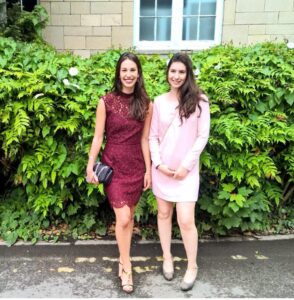
Describe your career journey since graduating. What is a typical day like in your current role?
After graduating, I started working in the French public administration, specifically with the Ministry of Defence. I spent a year between the headquarters in Paris and the French Embassy in Cairo. It gave me a new perspective on diplomacy and security from within the state apparatus – very different from my upbringing, but incredibly formative.
I then pursued a master’s in international development at Sciences Po Paris. After graduating, I briefly worked in the private sector consulting on governance issues, which was a good learning experience, but I missed the international and public-facing dimension of my earlier roles.
Next was Agence Française de Développement (AFD), where I worked both at headquarters and in the Tunisia country office. I focused on projects related to governance, civil society and public health across the North Africa region. My time in Tunisia was particularly enriching – I had the chance to work directly with government partners, and it was during this time that I became more involved in disaster risk management (DRM).
This interest evolved into a new opportunity with the World Bank, where I initially joined the Tunisia-based DRM team. I’m now based at the World Bank headquarters in Washington, D.C., as a Junior Professional Associate with the Global Facility for Disaster Reduction and Recovery (GFDRR). I work on the intersection between disaster risk, climate resilience, and fragility, conflict, and violence (FCV). My day-to-day includes a mix of research, operational project support and coordination with partners particularly in the Middle East and North Africa region.
One of the most rewarding aspects of my job is the chance to go on field missions. These visits break the intensity of D.C. life and allow me to reconnect directly with clients and better understand the on-the-ground realities that shape our work.
What do you enjoy most about your career? Has anything surprised you?
The travel has been a highlight – my work has taken me to places I never imagined visiting, like Chad. It’s a huge privilege to meet and work with people from so many backgrounds and cultures. The pace can be intense, and at times it’s a challenge to balance that with personal life, something my family and friends (understandably) sometimes struggle with.
What continues to surprise me is the sheer diversity of people at the World Bank – not only in terms of nationalities but also in perspectives and experiences. It makes for an incredibly stimulating environment.
How did your studies help to develop you?
My time at Bath shaped me in countless ways. The academics were strong, but the most valuable lessons came from everything around the classroom – student life, societies, events and friendships. I learned how to lead, communicate and challenge myself.
My placement year was particularly important. I was treated as a real member of the team, which gave me confidence and opened doors professionally. That experience made the transition into the job market much smoother.
What advice would you give to prospective students thinking about studying your course at Bath?
Take advantage of the flexibility the course offers – whether it’s choosing optional modules that align with your interests, like conflict studies in my case, or engaging in the placement year. The course gives you a solid grounding in international politics and relations while allowing you to tailor your learning journey. Don’t hesitate to explore topics outside your comfort zone – including languages! The multidisciplinary nature of the programme is one of its biggest strengths.
Also, stay engaged beyond the classroom – lectures are important, but the real value of your time at Bath lies in how you combine academic learning with student life, whether through societies, volunteering or work experiences. This is what will shape your personal and professional path.
Respond
